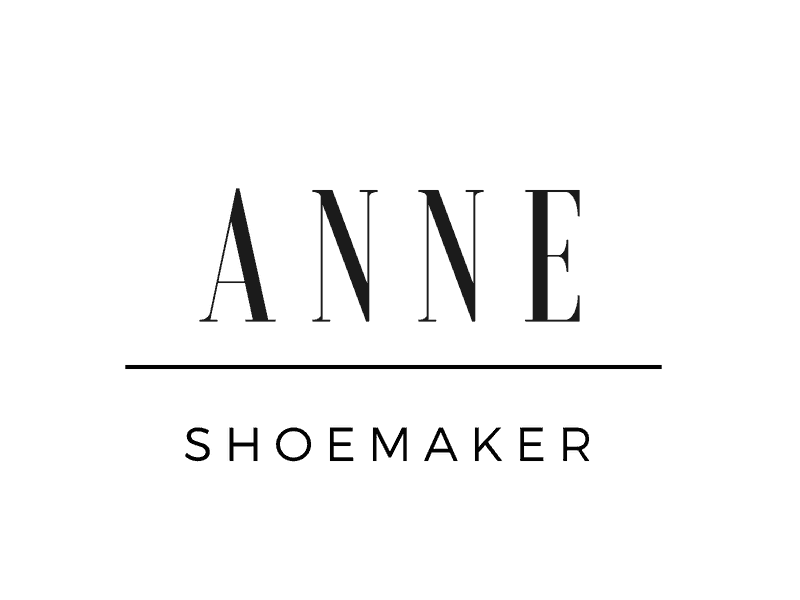What Is A Slash Career & Why Do You Need One?
What is a slash career?
Also known as a portfolio career, a slash career is one in which a person makes multiple income streams simultaneously from different careers. Marci Alboher popularized the phrase in her book One Person/Multiple Careers: The Original Guide to Slash Careers.
When people hear news about the “gig economy”, they are quick to associate gigs with Uber drivers picking up fares, stay-at-home parents taking online surveys, or, a millennial who is a nurse by day and a blogger by night. Having such a limited view of the gig economy is shortsighted.
We have long been taught the importance of diversification as it pertains to our financial portfolios. Savvy executives apply the same theory to their careers.
The rise of platform technologies has made it easier than ever to get a business off the ground. And so, portfolio careers were born.
In 2017, there were 57.3 million freelancers in the U.S.; by 2027, there are expected to be 86.5 million, which will comprise 50.9 percent of the U.S. workforce. Companies have long seen the benefits of using contractors, from reduced overhead and a more flexible workforce to increased creative inputs and fresh ideas.
Look around your office right now: half of these folks already have or will soon have a side hustle. How about you?
Senior executives are now developing at least one side income stream above and beyond that earned from their corporate full-time job, be that as a consultant, speaker, coach, or otherwise. More than just additional income, these passion pursuits have numerous personal and professional benefits.
Why have a slash career?
1. Fulfillment and confidence
Even if your corporate job is in an industry or a function that you went to school for and enjoy, chances are, you have interests and passions beyond your current employment and/or major.
No one is one-dimensional. It is unnatural to isolate our careers (and our lives and interests) within one field (e.g., civil engineering) or function (e.g., draftsperson). Neglecting our secondary or tertiary gifts and interests renders our skills useless in helping others.
The fulfillment we gain from pursuing a second interest coupled with the expansion of our skills brings about confidence. Increased confidence gives us the fortitude necessary to take risks in our careers that are necessary to continuous growth.
2. Halo effect of positivity
Fulfillment in one area of our lives has a spill-over effect of positivity in other areas of our lives. Tapping into a passion or interest that had otherwise gone latent awakes our mind and inspires our creativity, creating a ripple effect of positivity in our corporate jobs, family life, and community.
Thus, developing a thriving side-business has the potential of improving our performance at our day job.
3. Supplement and diversify your income
Supplementing your income is reason enough to pursue a slash career, but the opportunity to diversify your income may be even more compelling.
Consider the Coronavirus pandemic: mandated shutdowns ravaged the hospitality sector while the health care sector faced a labor and supply shortage. Restaurateurs felt helpless to change their circumstances while restaurateurs-slash-graphic designers were able to parlay their artistic gifts to online content creators (e.g., journalists) and, in turn, draw an income.
Heading into a recession with an established slash career in tow means one has had the forethought to hedge against industry disruption and risk. A larger emergency fund, less debt, and secondary income to draw upon can make even the most skeptical a bit more optimistic.
In sum: disaster-proofing your career is always a good idea.

4. Learn new skills
A slash career gives you the opportunity to learn entirely new skills and distinguish yourself from others in your field or organization.
For instance, if you work in a desk job with little opportunity for upward advancement at your current employer, but you know that being a skilled presenter is necessary to advance in your industry, having a slash career allows you to hone that skill. For instance, you can offer to speak with non-profit or for-profit organizations on a topic that you are an expert in, earning both a paycheck and experience in the process.
5. Fulfill creative urges
Perhaps you have always been skilled at drawing but your parents pushed you to pursue what they perceived to be a more financially reliable career. You’ve been successful in business for two decades but miss how alive you used to feel when you would draw.
Thanks to platforms like Fiverr and Upworthy, you can easily market your artistic skill to others with low risk and little to no barrier to entry.
Working on something you love may start as a passion project but turn into a lucrative side-hustle. It will tickle your brain in a new way and clear a path for both personal and professional growth.
6. Distinguish yourself from others
In times of crisis, employers consider the relative value of their employees. It may not be pleasurable to think about, but it is necessary. Who will they keep on staff when times get tight: the person who knows how to do job A, or the person currently doing job A who is also capable of doing jobs B, C, and D?
Having a diverse skill set means your employer can more easily find a place for you. Whether they have put your copywriting or website development skills to use or not yet, they know that you have the capability to fulfill the needs of two, three, or four specialist employees. Thus, when it comes to consolidation of positions, those with slash careers are better positioned to survive the downsizing.
Similarly, a hiring manager seeks to hire the best and the brightest; having a resume that is both deep and wide affirms their choice in you.
7. Future proof your career
If you’ve been in the same department, organization, or industry for a while now, chances are, your development is moving at the pace of your department, organization, or industry. Future-proof your career by moving out in front of that pace by picking up skills and experience that is not offered where you are currently.
8. Stave off burnout
World-class athletes cross-train in a secondary sport because they know that training year-round in their primary sport will lead to exceptional wear and tear on the muscles they most need to rely upon. This way, they stay active year-round, stimulating their brain and body while staving off burnout.
9. Experience inter-connectedness between multiple industry sectors
If you are accustomed to only attending conferences pertaining to your industry (i.e., you annually attend the National Association of {your profession} Conference); or, if you consider the CE you are required to complete to maintain your law license or your CPA certification the extent of your professional development for the year, well, you’ve got work to do.
Having a slash career exposes you to new people and experiences. Perhaps your industry conference is entirely in-person whereas the conference you attend related to your side-hustle has an online, distance-learning component to it. You now bring this idea and first-hand experience with this technology to your corporate conference.
Beyond that, the graphics you saw at this conference will bring your department’s new product to life for senior management in your organization; they’re just what they need to see to understand what your team has been working on.
You have now elevated your exposure (and your brand) at your day job by incorporating your side-hustle into your day job, thus increasing your fulfillment in both arenas.
10. Build your network
Attending the monthly chamber luncheon and the quarterly industry luncheon have helped you establish valuable connections within your industry. However, your industry does not operate in a vacuum. A slash career exposes you to professionals with whom you have a shared interest and with whom new opportunities may be discovered.
Successful professionals know well the benefits of a strong network. A portfolio career can 2x or 3x your network, which will pay dividends to your bottom line long-term.
11. Broaden your ideas to include various points of view
Your perspective may be currently limited to the point of view that is shared by others in your company or geographic region. However, when you incorporate other points of view to solve a problem, your perspective broadens; suddenly seem to be infinite ways to solve a problem.
Once we can see and believe that there are infinite ways to navigate a crisis or guide one’s career, we can suddenly see our own limiting beliefs for what they are. Once seen, we can remove them.

What does a slash career communicate to your boss/employer?
Having a slash career enhances your brand, both with your corporate employer and with others who are watching your career from afar via LinkedIn, MeetUps, and the like. Having a side venture is a “tell” – it offers insight to others as to who you are and the diversity of your interests and abilities.
Your side hustle helps people both inside and outside of your office identify you as a self-motivated, growing-edge thinker. Taking on more than just one means of employment at a time is a positive indicator for leadership potential and a sign of ambition, motivation, and creativity.
Every woman in the WORLD needs to have lunch with Anne! Before Anne and I started working together, I was struggling with how to grow; I wanted to maximize my full potential and become my best self. I often felt like I was ignored or disregarded, like my words would fall on deaf ears. Anne helped me build strong communication skills, learn how to adapt to working with others, and built my confidence. She helped me create a vision for the future. Anne’s integrity, high values, passion and vision for success is unmatched.
How to develop a slash career
In very broad brushstrokes, here are the first three steps you need to take:
Step One
Start by doing some deep thinking and/or working with a career coach. What lights you up? If you could wave a magic wand over your work life, what would it look and feel like? What impact would you make? How would you use your current skills, and what new skills are you seeking to develop?
In Glennon Doyle’s book Untamed, she mentions counseling women to lean into their imaginations and dreams by thoughtfully answering this question: “What is the truest, most beautiful story about your [career] that you can imagine?”
Step Two
Write down your answers to Step One.
Note: thinking about your answers, ruminating about your answers, and meditating about your answers DO.NOT.COUNT. You must pick up a pen or pencil (not a keyboard and a screen) and write it down.
If you are a verbal processor or would benefit from talking through your ideas, contact a career coach to set up a meeting.
Step Three
Take action.
Note: “taking action” does not mean thinking about your idea more, or calling a friend, then another friend, to get her support, opinions, or advice. No.
Taking action means DOING SOMETHING that moves you closer to developing your side hustle.
PSA: This “something” that you are going to do will almost certainly scare you or make you feel silly. This does not mean “put all your money at risk” or “stop derferring into your 401-k”; no. This means taking a big step that makes you think, “Are you REALLY going to ______ (go back to school; register for an online class; travel across the state to a one-day trade show; etc.). If it doesn’t make you a bit nervous, you have not thought big enough, and you may be on the wrong path. Go back to Step One.
Step Four
Repeat Step Three until you have a side income stream month-in, month-out, that you can rely on and that accomplishes your goals.
Congratulations!
Slash career examples
The academic who is also a wedding photographer; the lawyer who teaches public speaking courses online; the finance executive who coaches teenagers on acing their college entrance interviews; the human resources consultant who teaches lettering classes at night; and so on.
Technology paired with human imagination and innovation mean the sky’s the limit when it comes to creating your slash career.
What would your day look like?
Consider your current day-to-day schedule: do you have more availability on the weekend? Will your side-hustle require client meetings and, if so, what might your clients’ schedules look like? Can you restructure your day job to work 40 hours in four days so that you have one business day each week to dedicate to your side hustle? What sacrifices are you willing (or not willing) to make in your free time to allow you to pursue your side hustle?
Your slash career can be made to complement the existing components of your life. This will not be the last time that you have to make decisions and compromises to align your side-hustle with your day job. It IS do-able. It WILL take creativity.
Who do you want to become NEXT?
Carol Dweck popularized the notion of growth mindset, which is the first tool that you need to have to get your slash career off the ground.
You are not drawing two incomes YET; you are not as capable as you want to be in your side hustle YET; you don’t have all the clients you desire YET. Consistency compounds, so set your schedule and get to work. Your career will thank you.
CAREER RESOURCES



